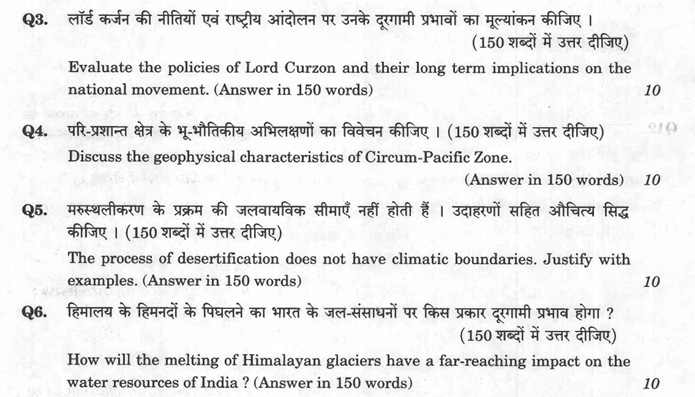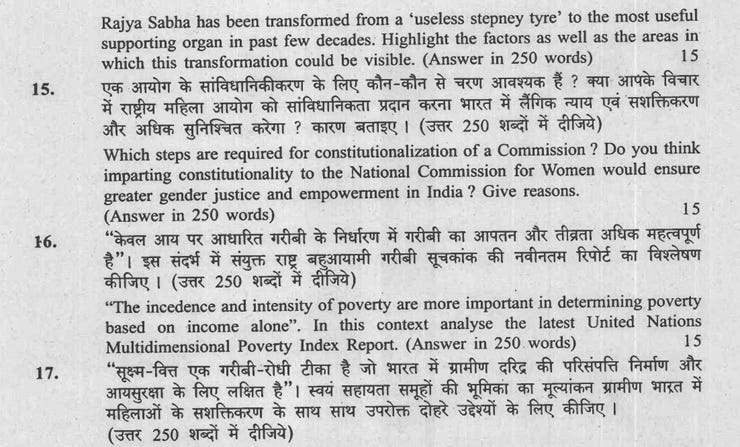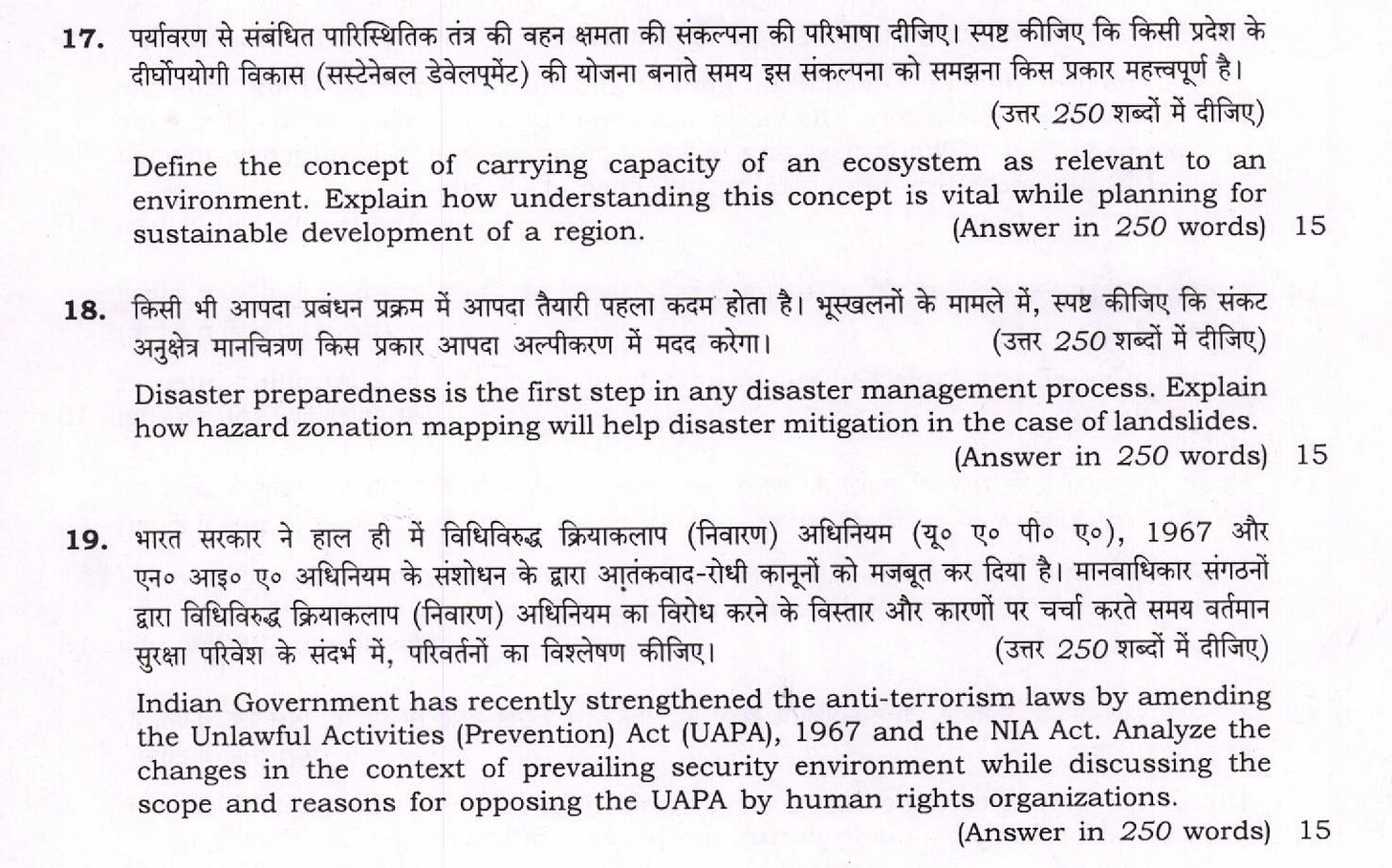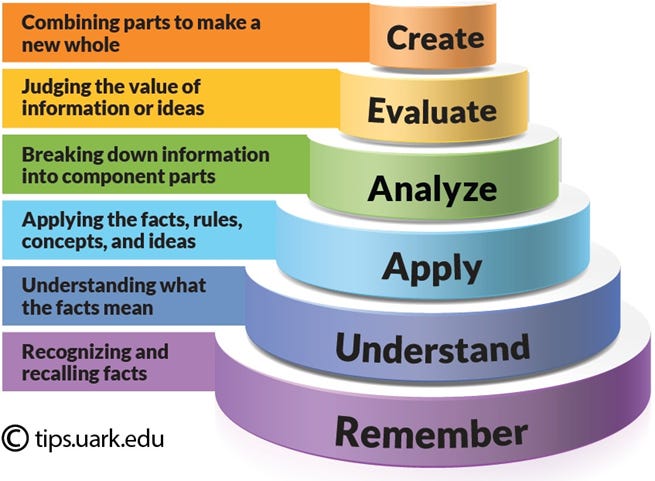Table of contents
These key words make a regular appearance in UPSC CSE mains. All you need to do is open up a paper from GS1, 2, or 3 and these words stare at you in each question.
Don’t believe me? Here are some examples:

There’s more where that came from:

And still more:

And understanding what you need to do in each case can be problematic at times. Because if you don’t know what those words mean, then you don’t know what to do when you see them.
Which brings us to the main topic of conversation today:
Levels of Knowledge
Yes, there are levels of knowledge. And we will be discussing a particular schema called Bloom’s Taxonomy of knowledge.
What is this Bloom’s Taxonomy?
Do you need to take notes? NO.
Instead, focus on understanding the concept here.

To grasp what’s happening at each of these levels let’s take up an example.
We’ll use a simple fact, that Dr. Ambedkar is the father of the Indian constitution, and try to analyse it from multiple angles.
Level 1 - Remember
Keywords: define
Fact - Dr. Ambedkar is the father of the Indian constitution.
You remembered this from a sentence ago? Congratulations! You’ve got level 1 skills.
Level 2 - Understand
Keywords: explain
To understand a fact you need to know the meaning behind it.
For example: Dr. Ambedkar is the father of the Indian Constitution, does this mean he gave birth to a book or does this means that he was the head of the Drafting Committee? I’m more inclined to go with the latter.
Level 3 - Apply
Keywords: Apply, justify, discuss, explain with examples
Coming to application, this is where the abstract fun begins. Given that you have understood a concept, you must be able to take it out of the environment where you found it apply it as per it’s rules in new surroundings.
For example: continuing with Dr. Ambedkar’s example we can move ahead and say that since he just headed the Drafting Committee, there must have been others who also contributed to the developement of the Indian Constitution.
And indeed there were. The Constitution was put through extensive debates in the Constituent Assembly sessions with multiple changes, additions and subtractions from the original draft by Dr. Ambedkar.
Level 4 - Analyse
Keywords: analyse, comment,
At this stage, we’re playing with abstractions.
Analysis means that you take a concept, break it down into parts and then look at how those parts combine with each other.
For example: Dr. Ambedkar was chosen as the head of the Drafting Committee? Why? To ensure that the constitution was inclusive and acceptable to all.
Level 5 - Evaluate
Keywords: critically examine, critically analyse, evaluate, comment
This is the fun part. This is where knowledge interacts with values. The term e-valu-ate is a compound which is built around the core of a value.
So in order to evaluate a fact, you must be clear on your values. For UPSC CSE aspirants that’s easy, your values should be based on constitutional values of justice, equality, liberty and fraternity. When in doubt, stick to fundamental rights.
Based on those values you evaluate whether a fact is good or bad.
Continuing with the example: Did selecting Dr. Ambedkar help us indeed create an inclusive constitution? Was he the right choice for being the Father of the Indian Constitution?
I’m sure you’re familiar with the famous quote:
“To educate a man in the mind and not in moral is to educate a menace to society.”
- Theodore Roosevelt
Particularly because this quote was given as an essay topic in recent years.
Evaluation is what Mr. Roosevelt was talking about. That you may have all the information and be capable of analysis, but till you’re unable to assign a good or bad value to those facts you might end up becoming a menace to society.
Level 6 - Create
This is the part where new knowledge is created. This is the domain of PhD scholars and researchers.
And technically, creating new knowledge during the exam is frowned upon, so best to avoid this level.
UPSC CSE Relevance
The first three levels, remembering, understanding and applying are important for UPSC CSE Prelims. Because that’s a fact heavy part of the exam.
The levels of application, analysis and evaluation are important for UPSC CSE Mains. As you can see from the snippets shared above, the questions use these terms directly. So having a deeper understanding of how they work is essential in order for you to improve your score.
In mains, you can’t get by with just facts. You must understand how the facts interact and change the trajectory of the future because of their interactions. This is the hard part, the unspoken part about UPSC CSE preparation.
You will not find this in any books. This is the part of UPSC preparation where you must learn to think for yourself.
But once you start, there’s no looking back.